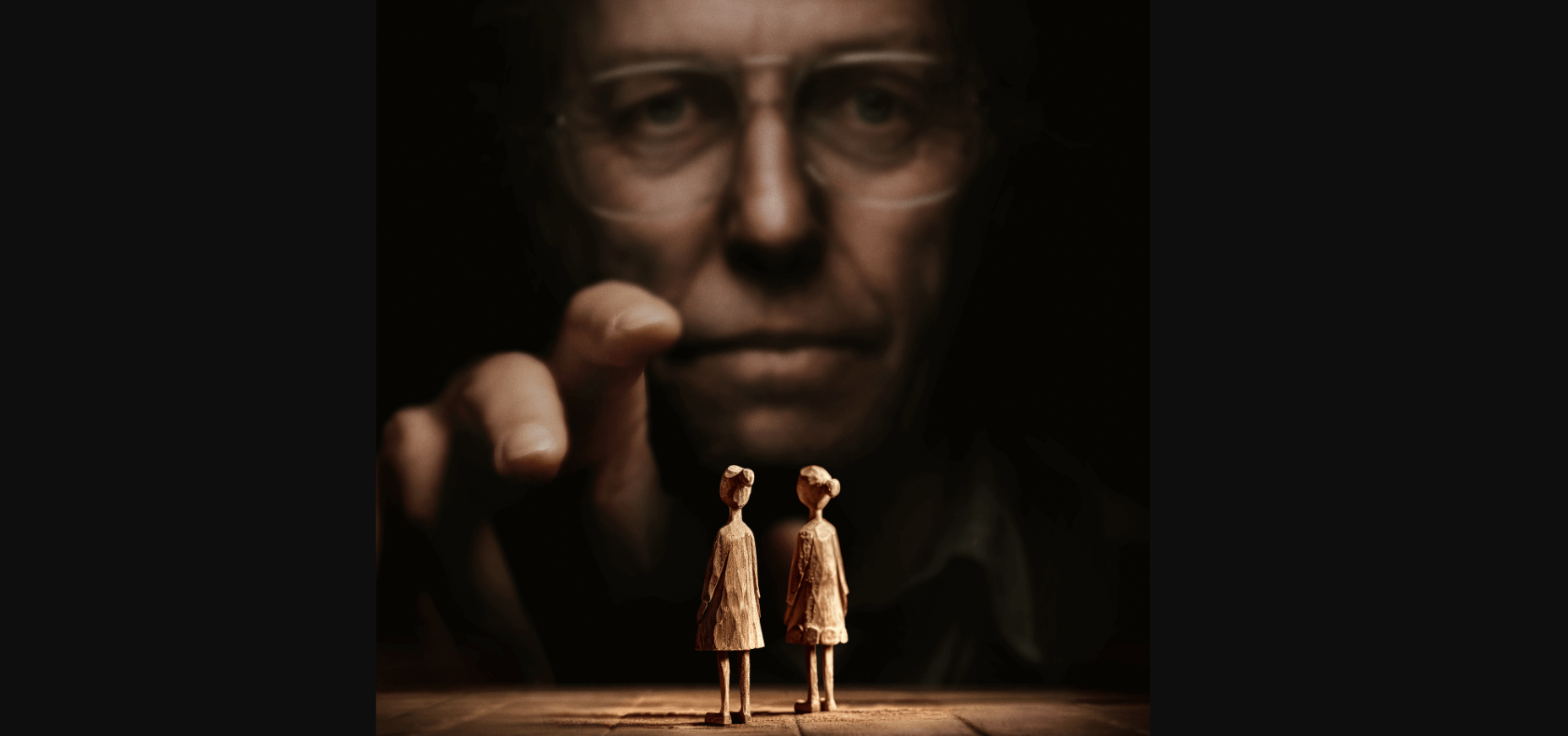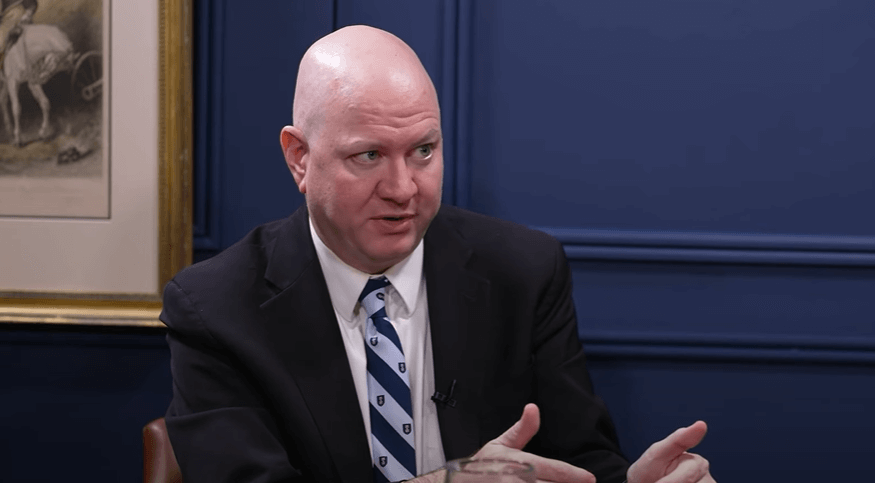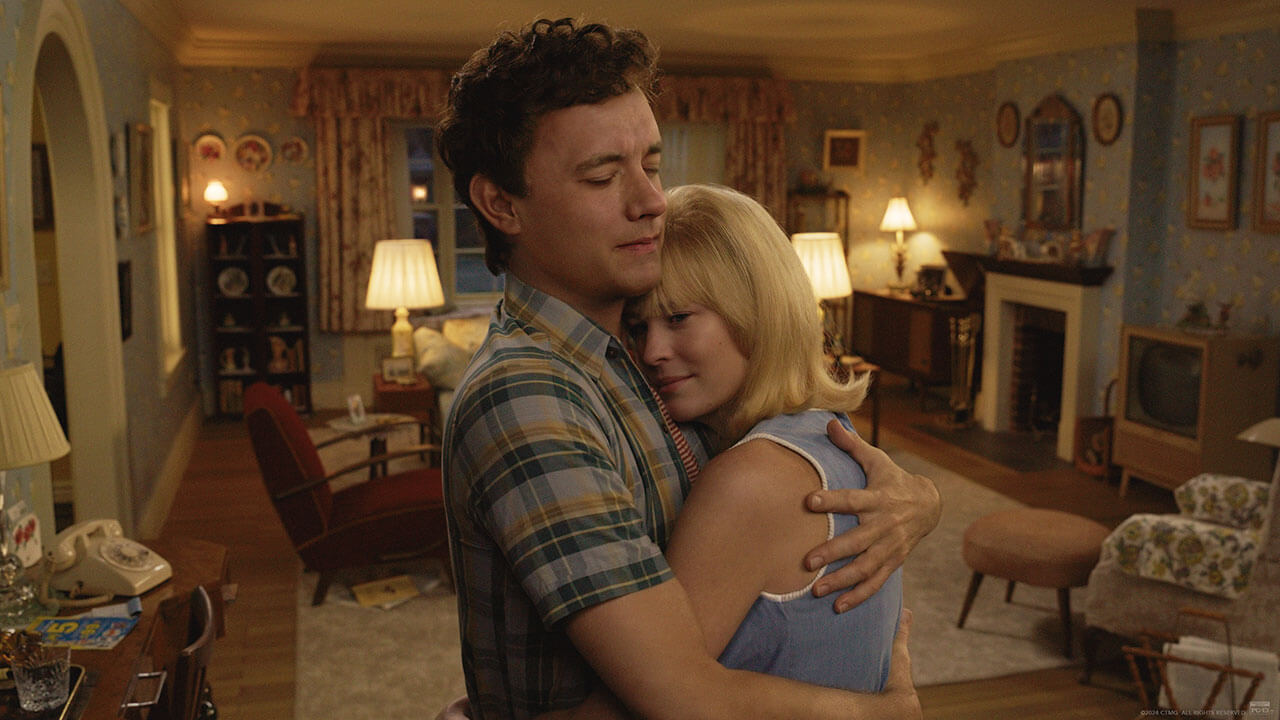What is truly frightening? A ghost? A monster? A serial killer?
How about a godless universe?
That’s what the main character in the new film Heretic is out to prove: that Christianity, Judaism, Islam, Buddhism, Hinduism, and all the rest are all phooey. His arguments are similar to those of the New Atheism movement at the beginning of this century. And just like it did with the New Atheists, this story comes to a dark end.
The movie begins with two young Mormon women, Sister Barnes (Sophia Thatcher) and Sister Paxton (Chloe East), doing missionary work. They find themselves in the home of a middle-aged man who had inquired into the Church of Jesus Christ of Latter-Day Saints.
Mr. Reed (Hugh Grant) invites the women into his home for refreshments and conversation, but they say they can’t enter unless a female “partner” is present. Mr. Reed assures them that his wife is inside and eventually gets them to sit them down for a chat. Conversation is polite at first, but then he asks them some more uncomfortable questions.
The first is about polygamy and Joseph Smith. The girls (Mr. Reed gauges them to be around nineteen or twenty years old) are predictably uncomfortable in answering for their church on this subject, but this is only a precursor to a full-blown indictment of not just Mormonism or Christianity broadly but the genuineness of all religions.
He challenges them to question whether what they believe is actually true, or whether they just believe it’s true because they have been indoctrinated.
If the latter is true, is every faith the same kind of lie?
In asking these questions, Grant comes across as the absent-minded but charming English chap he has portrayed in so many rom coms—but this time he’s sinister. I won’t spoil the film by revealing just how devilish he gets. But I will say that Mr. Reed takes Richard Dawkins–style New Atheism arguments and presents them as a horror movie villain. And it’s very frightening, perhaps the best performance of Grant’s career.
Heretic is a heady movie that might not be for everyone, but by making a challenge to religious doctrine scary, it stands out within the horror genre. And after all, what’s more frightening: Some maniac lunging at you with a knife, a situation from which you can feasibly escape? Or facing the prospect of losing hope for eternal life or any kind of hope at all, an end from which there is no escape?
The young Mormons are at first overwhelmed by Mr. Reed’s intellectual challenges and soon begin to fear for their own safety. It quickly becomes clear that Mr. Reed is not interested in exploring Mormonism but instead has intentionally lured them into his home as a philosophical and theological experiment. With bad intentions.
That wife he said he had? Her existence is questionable. But more importantly, Mr. Reed wants to know why the young women would just automatically believe him in the first place.
Based on faith alone?
Sister Barnes and Sister Paxton muster rebuttals to his challenges, using their own faith to push back on his arguments. Mr. Reed causes them to question, but not enough to abandon their faith, and in fact appears to have reinvigorated it.
Some Christians have criticized Heretic for allowing Mr. Reed to get too much of his argument in over the two Mormons and perhaps causing Christians to doubt their own faith. I disagree.
Just look what happened to the New Atheists. Richard Dawkins, Sam Harris, Daniel Dennett, and Christopher Hitchens (the so-called Four Horsemen of the movement, which peaked fifteen to twenty years ago) each believed that religion would fizzle out and be replaced by civic human reasoning. That didn’t happen; what fizzled out instead the New Atheism movement itself.
C. S. Lewis wrote that “Human history is the long terrible story of man trying to find something other than God which will make him happy.” Neither Mr. Reed nor the New Atheists have happiness outside of religion. Mr. Reed trots out all the most stereotypical arguments against Him to erect that wall, hoping to take others with him. And it doesn’t work.
The real horror of Heretic is the horror of unbelief—and the terrible things that can happen to those who become its prey.















